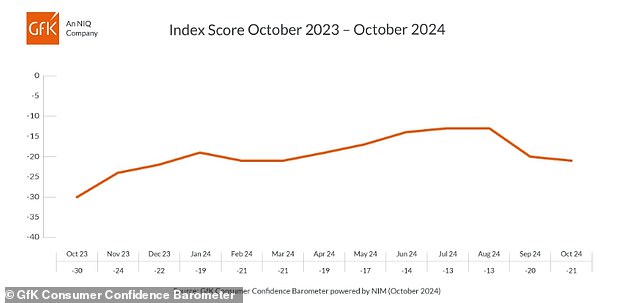CHARLES WHITE THOMSON: Labor should not betray taxpayers over headline-grabbing investment deals
Charles White Thomson is a senior fellow at the Adam Smith Institute and a former CEO of investment firms
Britain’s 2024 International Investment Summit has delivered £63 billion in private investment and 38,000 British jobs, before the budget was delivered.
The investments include: wind and solar farms, data centers and carbon capture infrastructure.
The investors include a wide range of multinational companies – Iberdrola, Blackstone and Amazon to name a few. On the face of it, this is good news and much needed, especially as our ability to increase our national debt to finance investment is currently limited.
As with all major financial announcements, the devil is in the details and there are two sides: the buyer or the multinationals and the seller or the UK.
Finding the sweet spot where both sides of the transaction win is easier said than done, and becomes even more complicated when long-term contracts, incentives and regulatory changes are factored in.
The buyers are a list of very sophisticated companies. They have shareholders or boards of directors who demand value or ‘return on their investment’ and will be supported by some of the brightest minds specializing in competitiveness for the future.
Britain also competes with countries such as France, Germany and the Netherlands. This is not a charity event; the companies want to make money.
They are right to be focused, because even the most sophisticated investors make mistakes. The Abu Dhabi Investment Authority, a sovereign wealth fund, is said to have recently written down their £263 million investment in Thames Water to £1.
This is what worries me. The negative narrative being spread around the UK economy, financial mismanagement, the alleged £22 billion black hole and a painful October budget could prove to be a double-edged sword.
We have told the world, and ourselves, that we are in a difficult position and that we need their money to help us grow. The recent survey of consumer confidence is revealing.
There is a tone of neediness that buyers will not miss and will therefore make hard bargains.
Sellers who appear needy rarely get the best price. The head of Eli Lilly noted at the Investment Summit that Britain has become a “relatively small market” after leaving the European Union.
Leaving aside the veracity of the claims for present purposes, this is of course a textbook example of muscle flexion, positioning and negotiation technique.

British consumer confidence fell faster than budget in September and October
This government needs good news after a difficult first 100 days, but there is no room for chasing positive headlines in the short term.
Or, put another way, we should avoid deals that look good today but will be bad in five years, leaving future governments or consumers to pick up the tab. This is why the details are so important and in many cases are missing or not made public.
This is where the electorate must hold the executive or ministers to account. What are taxpayers asked to contribute in terms of finances and other government support?
What controls will the taxpayer, through the government, have on the project for such a contribution? And if the project succeeds, how will taxpayers enjoy their fair share of that success?
We will also trust that newspapers such as the Ny Breaking will use their influence and resources to fully investigate and then publish their findings.
These investments are building blocks for our future growth. Our Government must show great confidence in these negotiations, knowing that we are the sixth largest economy in the world and that buyers must pay a fair and good price for a piece of Britain’s future.
I’d rather we come away empty-handed than sell out on a handful of headline-grabbing deals that turn out to be mispriced millstones.
Charles White Thomson is a senior fellow at the Adam Smith Institute and a former CEO of investment firms
DIY INVESTMENT PLATFORMS

A.J. Bell

A.J. Bell
Easy investing and ready-made portfolios

Hargreaves Lansdown

Hargreaves Lansdown
Free fund trading and investment ideas

interactive investor

interactive investor
Invest for a fixed amount from € 4.99 per month

Sax

Sax
Get £200 back in trading fees

Trade 212

Trade 212
Free trading and no account fees
Affiliate links: If you purchase a product, This is Money may earn a commission. These deals have been chosen by our editors because we believe they are worth highlighting. This does not affect our editorial independence.
